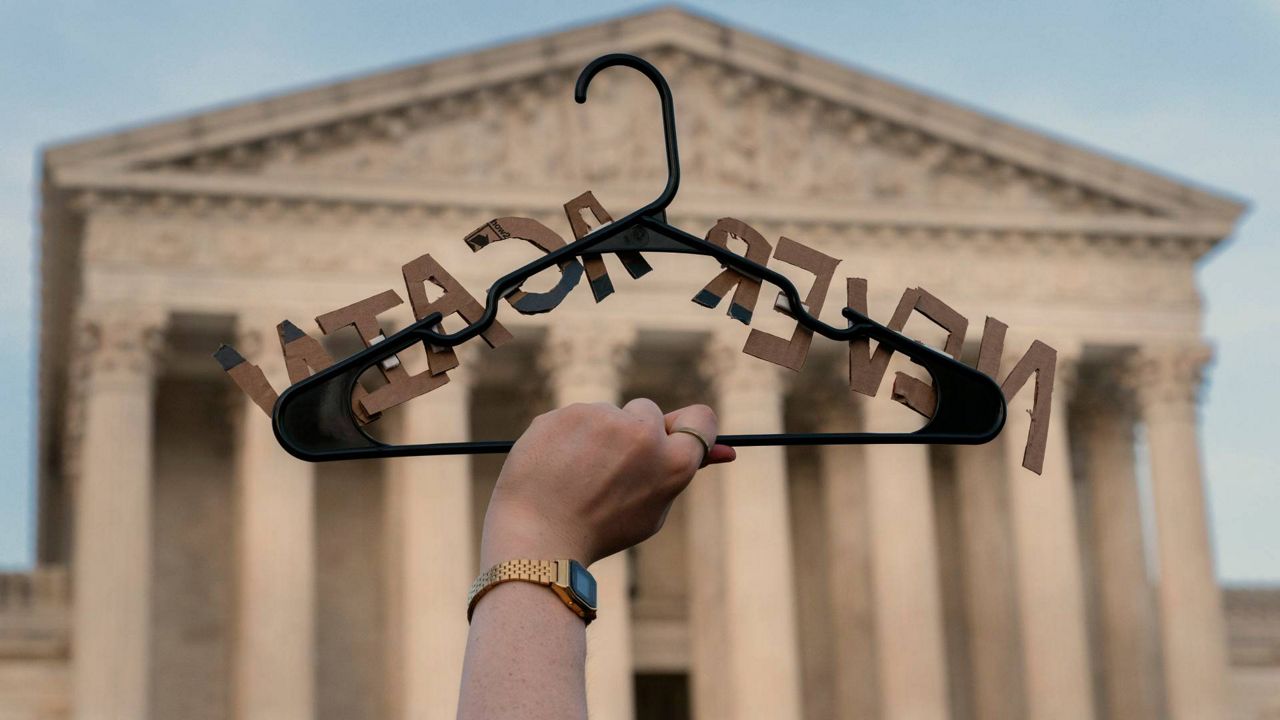The recent leak of a draft Supreme Court opinion suggesting justices are poised to overturn federal abortion protections awarded by the landmark 1973 Roe v. Wade caused a flurry of news stories, legislative actions and interest in abortions access.
The day after POLITICO first published the draft opinion, Google searches for abortion reached the highest levels since May 2019; searches for the term “Roe” reached Google’s highest-ever levels in the week following the publication. Protests soon spanned the country, culminating in a crowd of thousands that marched down the National Mall to the Supreme Court last Saturday.
Still, despite the uptick in discourse, recent polling indicates the leaked document did not appear to greatly sway Americans’ views on the issue in that meaningful a way, suggesting abortion access might not be the deciding election-season topic some politicians believe it to be.
Historically, Americans have polled largely in favor of supporting access to abortion, with some restrictions – a sentiment which has held relatively steady over the past two decades, according to Gallup.
In May 2001, nearly 26% of those surveyed said abortion should be legal under any circumstances; that number was at 27% in May 2011 and up to 32% in May 2021. In 2001, between 51-58% of the surveyed population believed abortion should be legal “only under certain circumstances,” down to 48% of those surveyed in May 2021.
Polls conducted in the wake of the leaked document, which was first published by POLITICO on May 2, show those sentiments largely remain intact across the country.
One CBS News / YouGov poll surveyed 2,088 random adults between May 4 - May 6 about their feelings on abortion, as well as the overall direction of the country. Of those surveyed, around 50% felt abortion should be “generally available” to those who seek the service; another 33% felt abortion should be available, but more regulated than it currently is and another 17% felt abortion should not be permitted.
Thirty-three percent of the respondents in the CBS News - YouGov poll said, should the issue be returned to the state level, abortion should be legal in all cases, a figure largely in line with Gallup’s national average.
Both before and after the draft Supreme Court decision was leaked, around a third of Americans wanted Roe v. Wade to be overturned, according to separate YouGov surveys.
In a YouGov-The Economist survey conducted between April 30 - May 3, taken largely before the leaked documents surfaced, 32% of respondents said they would like to see Roe v. Wade overturned, compared to 36% of respondents who said so in the CBS-YouGov poll.
Though the leak has generated much discourse, it seems increasingly unlikely to sway many primary or midterm elections.
One NBC News poll conducted in the wake of the POLITICO article found that 52% of respondents were less likely to vote for a political candidate who supported overturning Roe v. Wade and returning the decision to the states.
Still, abortion is not the top issue for many voters going into the midterms – those are instead cost of living, jobs and the economy, the war between Russia and Ukraine and a number of other topics, per the NBC News poll.
Economic policy was also the top election-season concern for respondents on a recent Monmouth University poll, which was conducted ten days after the draft Supreme Court opinion first leaked. Abortion was, however, the second-highest concern in the Monmouth poll, followed by health care, immigration, gun control and taxes.
Democrats were the most likely to say abortion access was among their chief concerns, with nearly 48% of Democratic respondents saying it was “extremely important” for a candidate’s views on abortion to align with their own, up from 31% of those surveyed in 2018.
“Many Democrats are clearly focused on abortion as a driving factor in the midterm elections,” Patrick Murray, director of the Monmouth University Polling Institute, wrote in a statement. “However, what is not clear from this one poll is whether this issue is actually motivating voters who would not otherwise come out to vote this year.”
But single-issue voters have, in the past, swayed elections, and some strategists think the GOP could be on the wrong side of the issue come election day.
“Republicans were getting comfortable with, ‘Oh, it's gonna be a red wave, I don't have to go to the polls.’ Now they realize that they can't become complacent,” Deana Bass Williams, a GOP strategist who formerly worked for the Republican National Committee, told POLITICO.
The real possibility that abortion could be outlawed in dozens of states in the coming months could animate Democrats' dejected base — especially young voters, people of color and suburban women, who are unhappy with the pace of progress under Democratic leadership in Washington.
Republicans, meanwhile, are struggling to contain their excitement at the prospect of winning a decades-long fight, even as they suggest Democrats are exaggerating the likely real-world impact of a Roe reversal.
While the political fallout will take months to settle, this much is clear: Rarely in the modern era has a Supreme Court case had the potential to so dramatically reshape American life and politics.
The Associated Press contributed to this report.



